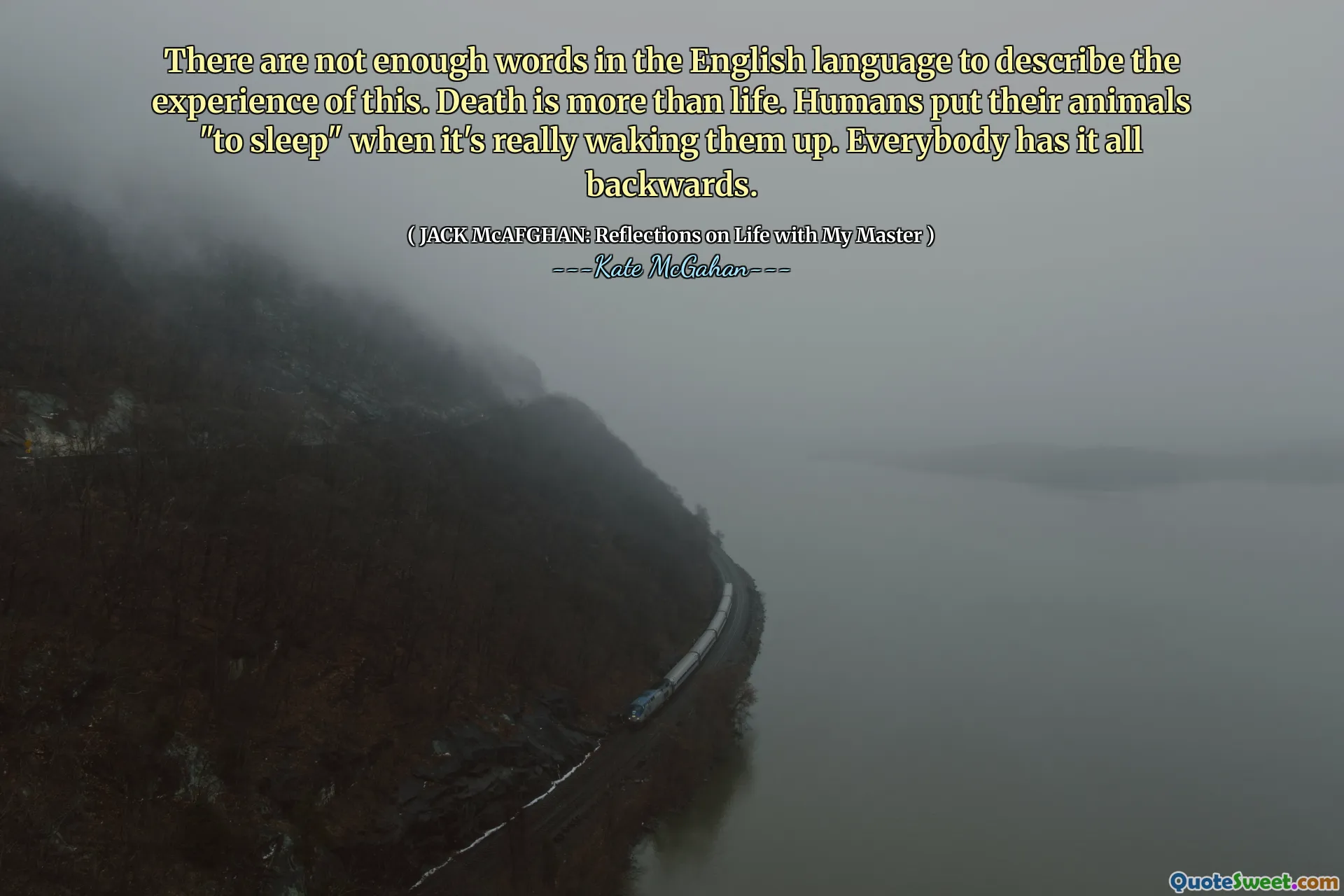
There are not enough words in the English language to describe the experience of this. Death is more than life. Humans put their animals "to sleep" when it's really waking them up. Everybody has it all backwards.
This quote invites deep reflection on the profound nature of life and death, emphasizing how human perceptions often distort the true meaning of these experiences. The assertion that death is 'more than life' challenges conventional views; it suggests that death is not merely an ending but a vital part of the continuum of existence. Our language struggles to capture the full scope of these phenomena because they transcend simple definitions. The phrase about humans putting animals 'to sleep' when they're really awakening highlights a common human tendency to euphemize or deny the reality of mortality, often to comfort ourselves or avoid emotional pain. In truth, death might be seen as a form of awakening—an entrance into an unknown or another state of being. This perspective encourages us to reconsider our approach to mortality, not as something to fear or hide from, but as an intrinsic shift or transition that may be as natural and even necessary as the cycles of life itself. Such a viewpoint can foster greater compassion and mindfulness, urging us to treat life with more reverence and accept death not as an end, but as part of the ongoing journey. Recognizing that our language and cultural narratives may be inverted or limited in their understanding can open us to a more intuitive grasp of existence, encouraging us to live more meaningfully and to confront our fears with honesty. Ultimately, embracing this broader perspective might generate a more profound appreciation for the brief, precious moments of life and the mysterious continuation beyond it.






